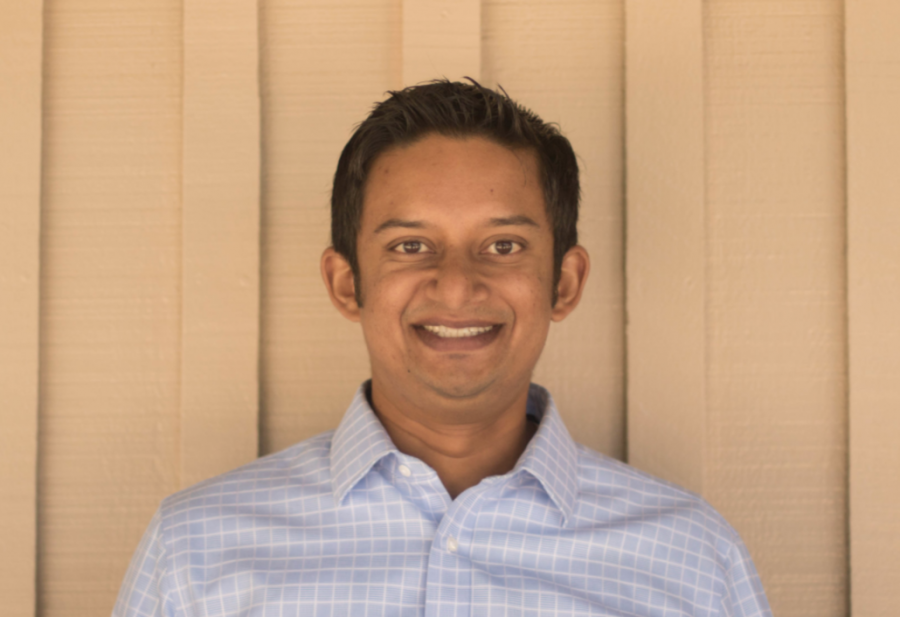Racial Awareness at CHS – Amartya De
February 18, 2017
What ethnicity are you, and how did your ethnicity affect the way you grew up?
As you know, I am Indian. Growing up, my ethnicity affected me a lot. I grew up in Southern Indiana, which I would say was 90% Caucasian. It was nothing like Cupertino. I was definitely a minority there; in fact, I was the only Indian kid in my school. Because of that, I had to assimilate as much as I could in a majority Caucasian population. It was hard to be different. People look at you differently.
Did you ever notice any differences in the way people treated you when you were younger?
Definitely. It was harder to make friends, I would say that I just stuck out from others a bit more. That being said, I don’t think that my community was necessarily discriminatory; I would say that the people were pretty open, pretty welcoming. There was a small Indian community where I lived–there were around 300 families in the Tri-state Area (which includes Illinois, Indiana, and Kentucky), and we’d have parties sometimes on the weekends. But other than that, I didn’t really see any other Indians.
Growing up in Indiana, did you ever develop a fixed mindset about yourself or others?
Yeah, I felt like there was me, and then there was them. I kinda didn’t feel like I necessarily belonged in school.
How did you respond to that?
I just did my own thing. There were certain things that I was good at –– academically, I was strong. I never felt that I wasn’t doing well academically, it was more of the social aspect, because it was really hard to assimilate to the “cliques” that were mostly Caucasian. It was hard to integrate into the community at school, because I felt so different.
Has race ever been an obstacle for you?
Yeah, I did feel like it was an obstacle. Any time you’re in a community where you’re the only one of a certain nationality, it’s hard. You’re not like everyone else, you don’t reap all the benefits that others do. If someone is discriminating against you, you have to speak up for yourself and no one else will have your back.
How is the Cupertino community different from what you experienced in Indiana?
Interestingly, I feel like the Caucasian students are definitely not as much of a majority as they were in my school. The one thing I’ve noticed is that people tend to stick with others of their own background, which is probably what it’s like in Indiana too, maybe because they’re afraid to hang out with people from other backgrounds. You have these sort of factions – groups of people who stick with their own kind. Also, I don’t think there’s really any open discussion of like “You’re Indian, and I’m white”; it’s very much beneath the surface. Yes, there are judgements about certain races and things like that, and that seems to be pretty prevalent, but I don’t think people necessarily vocalize it that much. It’s more in their head. One of the things I want Cupertino students to understand is that Cupertino is not like the rest of America. I consider states like Kansas to be more representative of America as a whole, because there are more Caucasians there. That’s what most of America is like. Most of America is not like Cupertino. So, I challenge Cupertino students to break out of their comfort zones. If you’ve been around students from the same nationality your entire life, try to realize that they’re much more to America than Cupertino. Sometimes, people think that I come from a different country. They look at me like an alien when I say I’m from Indiana. They need to understand that this area is the anomaly. Most places are not like this in terms of racial mix. They need to understand that they might go to a college in a different place that doesn’t have this sort of heterogeneous mix. And they need to ask themselves, can I integrate into this heterogeneous culture and still feel like they belong. You have to be willing to have an open mind.
If you were to go back to your younger self, what is one thing you wish you knew?
I think when I was younger, I thought oh my gosh, I’m trapped, and I’m never going to fit in with this culture. But I wish I knew that I can move any place I want. I moved out to California because I felt it would be more comfortable. I wish I knew that it doesn’t always have to be a particular way. Even if it has to be a certain way, you can always do things to make yourself feel more at home. You don’t need to isolate yourself; you can integrate yourself in such a way that you can feel just as welcome as anyone else who is part of the majority.




